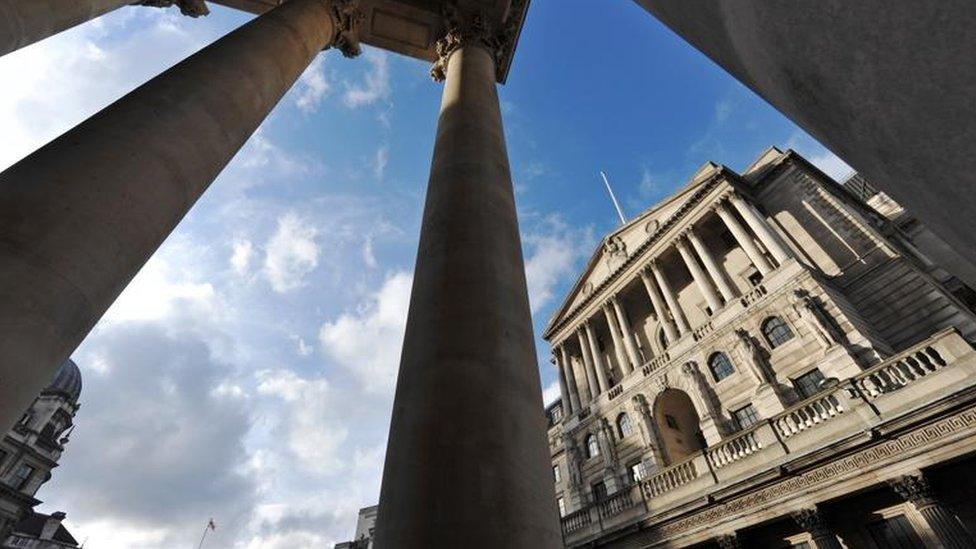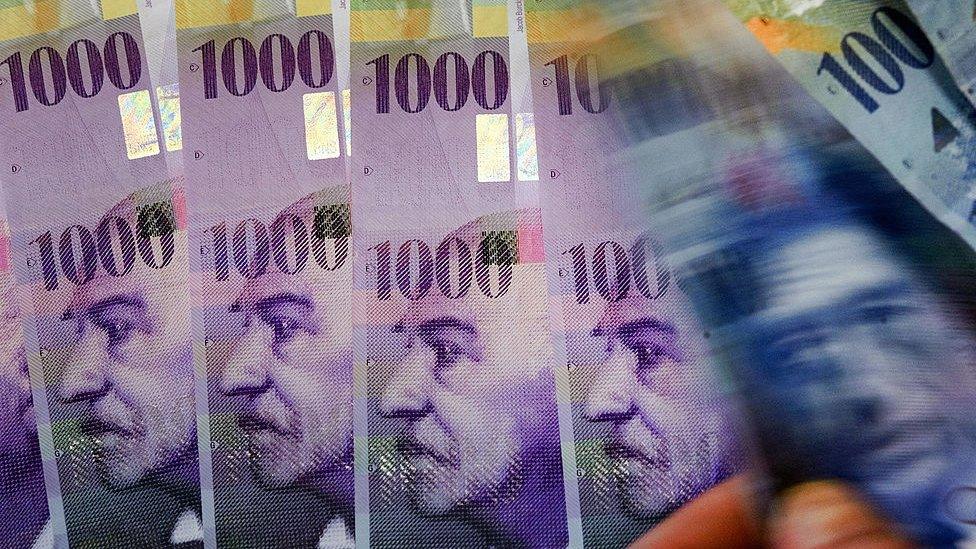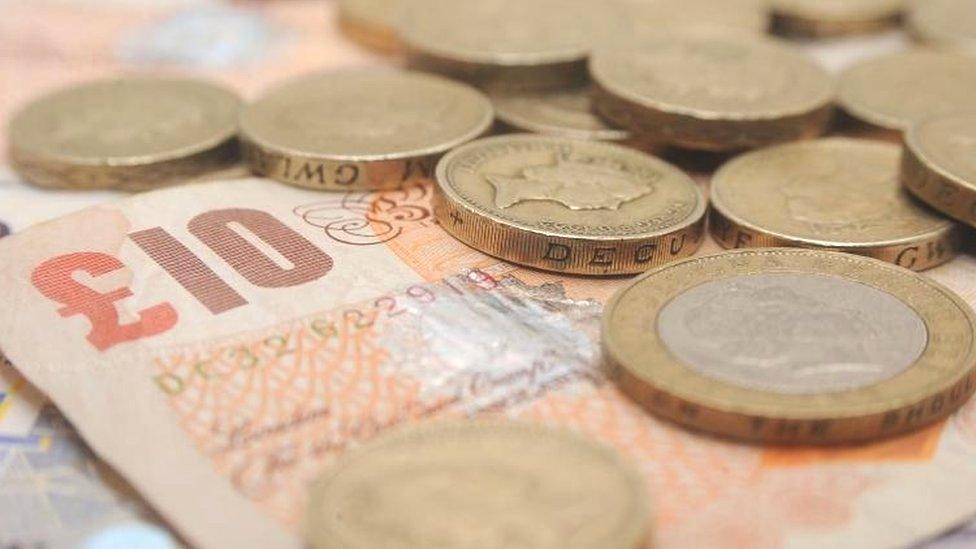EU referendum: What next for the world's central banks?
- Published

Economic policymakers must now decide whether and how they should respond to the UK's vote to leave the EU.
A Leave vote was always seen as more likely to generate significant disturbances in the financial world.
For that reason it is also the result which was thought more likely to pose a headache for the world's central banks.
There have already been statements from some that they are prepared to act to maintain financial stability.
There are two potential issues they might want to respond to in the short term: the stability of the (commercial) banks and swings in exchange rates.
With the banks there is a possibility of a general rise in risk aversion, and some might have difficulty borrowing in the inter-bank market. The ultimate danger from that is that they might be unable to make debt payments as they come due.
Central banks can address that by lending them extra money (liquidity). In the UK the Bank of England has already been doing this ahead of the referendum, hoping to ensure that there is sufficient liquidity already in place. The Bank has said it "will continue to monitor market conditions carefully and keep its operations under review".
Other central banks will be ready to take similar action if they think it's needed.

There have been suspicions that the Swiss central bank has been intervening on the currency markets
What if the strains show up in terms of foreign currency liquidity - say an Italian bank needing quick access to Swiss francs?
There are arrangements known as swap lines put in place during the international financial crisis that can be used if necessary. The Italian bank could then get Swiss francs from the European Central Bank (ECB), (and the Swiss National Bank would be able to offer euros to Swiss banks if needed). The Bank of England is involved in these arrangements so it can get foreign currency if British banks were to need it urgently.
Precipitous fall?
With sharp moves in exchange rates, there are several options. They could just live with it. But if they felt the swings were too sharp and destabilising they could intervene using their foreign currency reserves.
In the case of the UK, the decision to conduct such intervention is for the Chancellor of the Exchequer, George Osborne, with the Bank of England carrying it out in the markets.
So if there were too precipitous a fall in the value of one currency (sterling would be the obvious candidate in the event of a leave vote) the Bank of England could buy sterling with dollars or yen from its reserves, hoping the additional demand for the pound would support its value.
Conversely the Swiss National Bank has been worried about too rapid a rise in the Swiss franc and has already been into the markets to buy other currencies such as the euro with its own national currency.
Further action on these lines is a possibility. Currencies seen as havens are susceptible to unwanted sharp rises in times of financial stress and the Swiss franc is a prime example of that.
Currency market intervention is often not announced. Some observers say there is evidence suggesting that the Swiss central bank might have intervened over the past week. The intervention after the vote by the SNB was announced however.

Interest rates can also be used to curb currency moves - a cut to stop a currency rising; a rate rise to prevent a fall.
Both options, interest rate moves and intervention, can be co-ordinated by central banks.
Further quantitative easing (QE) is also a possible response to a rising currency. It tends to drive down market interest rates and there has been some speculation that it might be on the agenda very soon, perhaps from the Bank of Japan (which does not want to see the yen gaining value).
Flight to safety
Interest rate moves and QE can also be used to address longer term fallout - to tackle any impact on inflation or growth. The Bank of England has scope to cut rates further and it could undertake further QE. A fall in sterling would be inflationary, though up to a point that could be welcome as inflation is currently (at 0.3%) far below the Bank's target (2%).
Another risk is that in a general flight from riskier assets the government debt problem in the eurozone could return, pushing up borrowing costs for countries such as Spain and Italy that were in the firing line a few years ago.
Those earlier eurozone storms abated after the ECB announced that it was prepared in some circumstances to buy the bonds, the debts, of governments severely affected. In the event it never used this new weapon. The mere threat of doing so was enough to settle the eurozone bond market.
Some observers, such as the London consultancy Capital Economics, think it could finally use this programme, if the aftermath of a leave vote were sufficiently disruptive.
The likely timescale for these options varies. In principle many could be done very quickly. The most urgent, if needed, would probably be bank liquidity. Interest rates and QE could be announced early, but could also be used as a response to economic fallout that might emerge over a longer period.
The ECB's option of riding to the rescue of the likes of Spain or Italy would take some time. They would need to have an economic policy programme agreed with the rest of the eurozone. And Spain in particular, with an election this weekend, is itself in a period of political uncertainty that could make it difficult to conduct international negotiations.